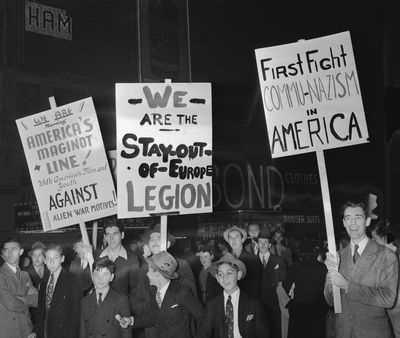*The War Powers Act*

The War Powers Act is a congressional determination intended to constrain the U.S. president's capacity to start or raise military activities abroad. Among different confinements, the law requires that presidents advise Congress in the wake of sending the military and points of confinement to what extent units can stay drew in without congressional endorsement. Authorized in 1973 with the objective of evading another protracted clash, for example, the Vietnam War, its adequacy has been over and again addressed all through its history, and a few presidents have been blamed for neglecting to conform to its controls.
WHAT IS THE WAR POWERS ACT?
The War Powers Act—formally called the War Powers Resolution—was established in November 1973 over an official veto by President Richard M. Nixon.
The law's content edges it as a method for ensuring that "the aggregate judgment of both the Congress and the President will apply" at whatever points the American military are sent abroad. Keeping that in mind, it requires the President to counsel with the governing body "in each conceivable case" before submitting troops to war.
The determination likewise sets down revealing necessities for the CEO, including the obligation to tell Congress inside 48 hours at whatever point military powers are presented "into dangers or into circumstances where fast approaching association in threats is unmistakably shown by the conditions."
Furthermore, the law stipulates that Presidents are required to end remote military activities following 60 days unless Congress gives an assertion of war or an approval for the task to proceed.
IS THE WAR POWERS ACT EFFECTIVE?
As far back as its section in 1973, legislators have been separated on the War Powers Act's adequacy. Supporters of the determination keep up that it is a truly necessary mind the president's capacity to make war without Congressional endorsement.
Pundits, in the meantime, contend the law has neglected to make better coordination between the official and administrative branches. Some trust the law is excessively prohibitive on the president's capacity, making it impossible to react to remote crises, while others fight that it gives the president free rule to confer troops abroad.
Most specialists have a tendency to concur that the War Powers Act has infrequently functioned as proposed. As indicated by one examination by the Congressional Research Service, presidents have generally abstained from referring to specific arrangements of the determination at whatever point they submit reports to Congress. Therefore, the 60-day time breaking points of the law have once in a while been activated, and it has never been accustomed to convey a conclusion to a remote military task.
In light of the War Powers Act's antagonistic history, there have every so often been requires the determination to be revoked or changed. One striking endeavor came in 1995 when the U.S. Place of Representatives voted on a revision that would have canceled huge numbers of the Act's principal parts. The measure was barely crushed by a vote of 217-204.
Cheers!